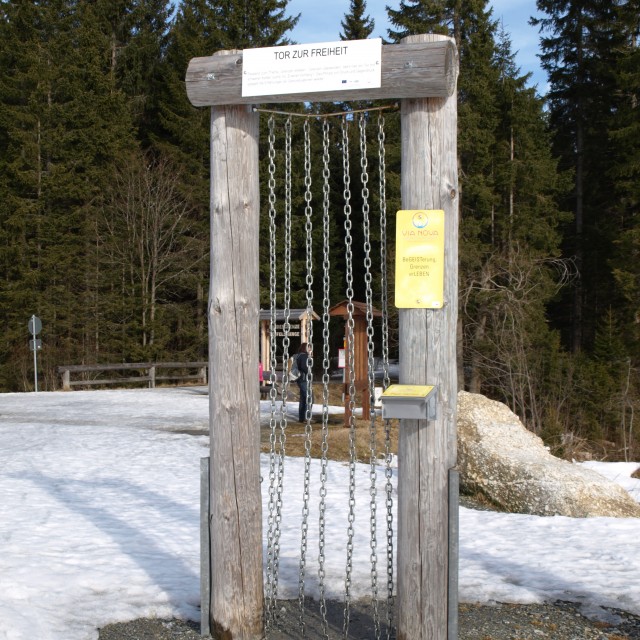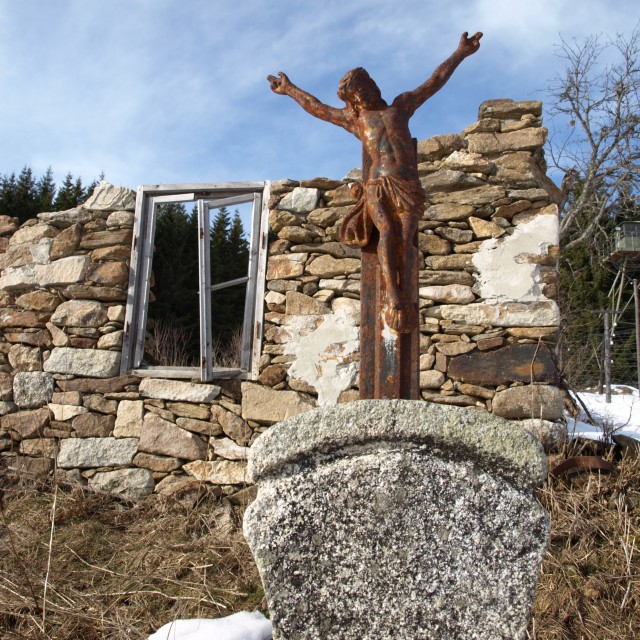They knocked him out and threw him into the basement just like they did with his dad before
Kveta Pěničková recalls the stories she had been told by her life partner Hans Bayer, about what he witnessed as a German from the Sudetenland shortly after the war, when the notorious Revolutionary Guards arrived in the Bohemian Forest: “They came to terrorize the population of Bučina. They had all the men aged fourteen and above assemble in the Fastner Hotel and began to interrogate them. Hans and his father were first according to the alphabet. At first, his father was taken away. They didn’t know what was going on since he wasn’t coming back for a long time. Then it was Hans’s turn. They took him and made him walk down an aisle between the guardsmen who beat on him from both sides. Then he came to a table where a man who spoke Czech fluently was sitting. He showed him a paperweight with a swastika on it. He asked what it was. Hans of course replied that it was a Hakenkreuz. He got a blow to the head. The man showed him a picture of Hitler and again, he was beaten. Then they put him on the floor and beat him up so ferociously that he lost his kidney. Finally, they threw him down the stairs to the basement like a piece of cloth. He landed directly on his dad.”
Hodnocení
Hodnotilo 0 lidí
Routes
Not a part of any route.
Comments
No comments yet.



